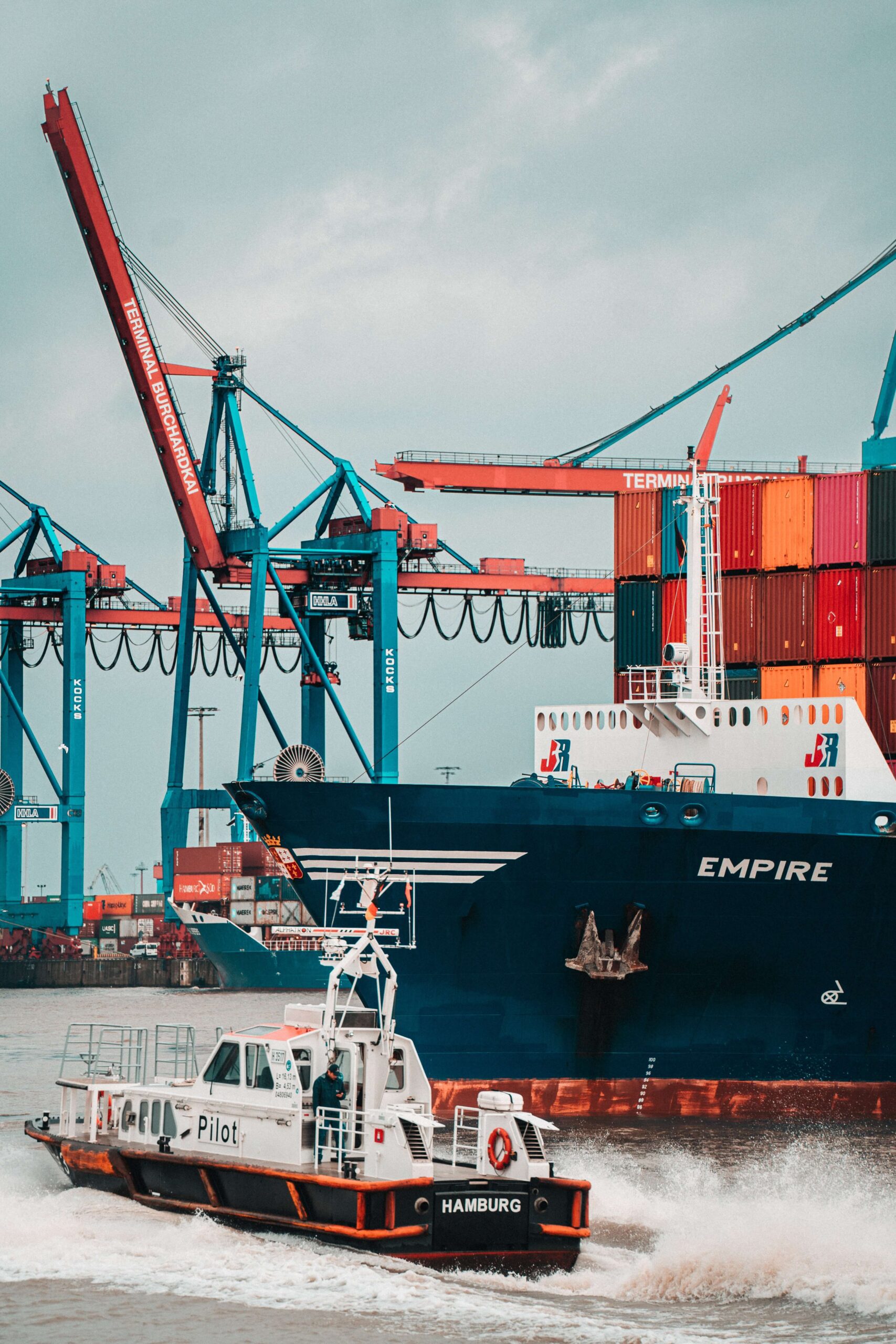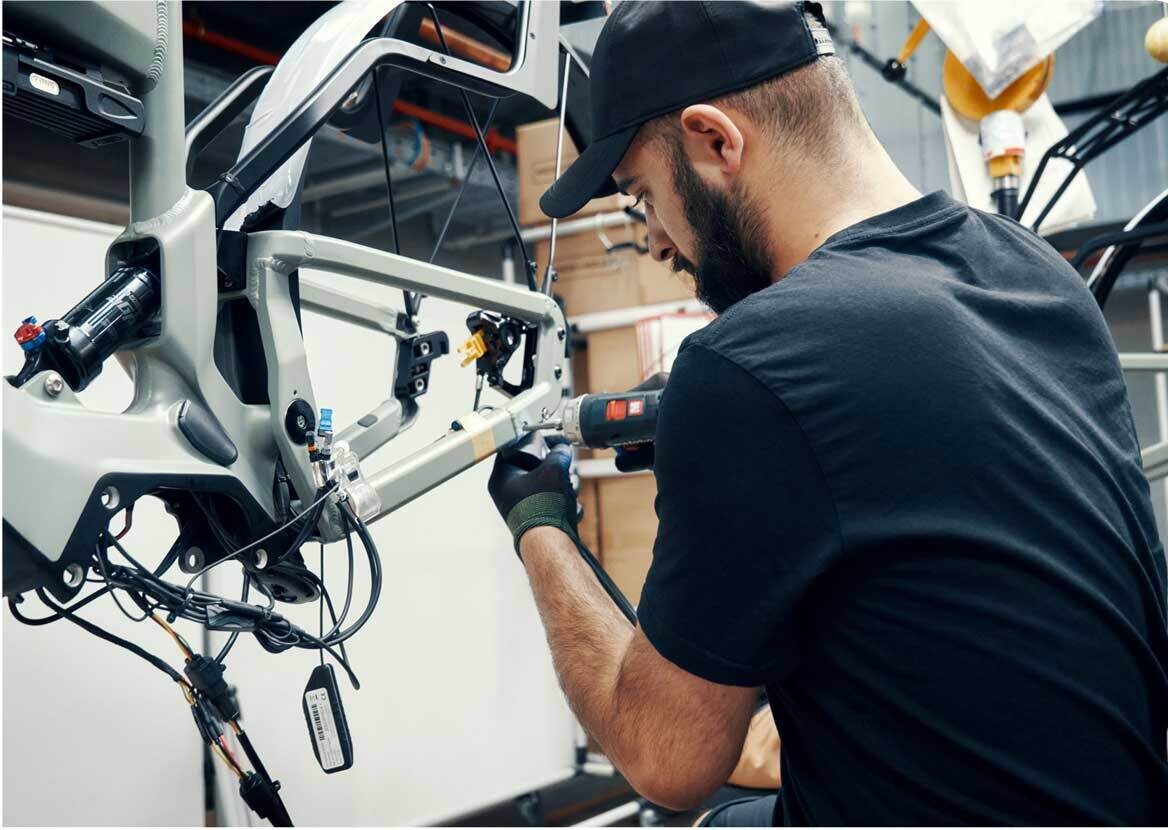
The importance and future of sustainable supply chains: Interview with Klaus Wiesen
In this interview, Klaus Wiesen, Head of Sustainable Supply Chain at VERSO, answers relevant questions on the challenges and solutions for more sustainability in supply chains and the role of the supply chain in the future viability of companies.
Companies currently have to deal with several requirements. In addition to the German Supply Chain Act, the CSRD, which has been in force since 2024, is on the table, while CBAM and EUDR also pose new challenges. The CSDDD is on the horizon. In this interview, Klaus Wiesen, Head of Sustainable Supply Chain at VERSO, answers relevant questions on the challenges and solutions for more sustainability in supply chains, the role of the supply chain in the future viability of companies and how the VERSO Supply Chain Hub supports the implementation of sustainability requirements and legal requirements such as the LkSG or the CSRD now and in the future.
7 questions for Klaus Wiesen on challenges and opportunities in the supply chain
1. Why is the supply chain so important for protecting the climate and human rights?
On average, more than 80 per cent of CO2 emissions in the value chain come from the supply chain. The supply chain also plays a key role when it comes to respecting human rights and protecting biodiversity. Sustainable companies and sustainable products are only possible with a sustainable supply chain – which makes the supply chain a decisive factor for the future viability of companies.
2. What obligations do companies face with regard to their supply chains now and in the future?
The obligations are extensive. A lot has happened in terms of regulation. For example, the CSRD (Corporate Sustainability Reporting Directive) requires companies to report extensively on their commitment to sustainability, with the supply chain forming an important part of the reporting. In addition, the member states have agreed on the EU Supply Chain Act (European Directive on Corporate Sustainability Due Diligence) and the EU law to stop deforestation has been passed. Last but not least, the German Supply Chain Act, the “Lieferkettensorgfaltspflichtengesetz” (LkSG), came into force on January 1, 2023. All of this ensures that companies are required to procure in a way that takes climate neutrality, environmental protection and respect for human rights fully into account. The biggest challenge for companies in fulfilling the upcoming obligations is that a supply chain cannot be made sustainable in the blink of an eye. The transition to a sustainable supply chain takes time. Accordingly, sustainable procurement cannot be achieved in a one-off project, but the path to it requires new structures within the company and continuously ties up resources. It is important that companies start early enough. Due to the current crises, however, the opposite is often the case: the issue of sustainability is put off for as long as possible. This will backfire on companies later on.
3. What are the most important steps in achieving sustainable procurement and which departments should be involved?
In purely organisational terms, purchasing should always be involved with a central function, especially as purchasing typically maintains the most intensive contact with suppliers. It is therefore important to build up sustainability expertise in purchasing – in addition to close coordination with the CSR department, if this already exists in the company. For procurement, this is an opportunity to reposition itself strategically within the company.
Transparency is also required in the supply chain: where are the suppliers’ production sites located and who is the right contact person for sustainability at suppliers? Which sustainability standards do the suppliers fulfil? And do their own suppliers in turn purchase from sustainable sources? In most cases, companies do not have the answers today.
4. How can such transparency be achieved across the supply chain?
One key to transparency is co-operation with suppliers. It is no longer just information on price or quality that needs to be obtained from suppliers. Sustainability information is also required. And not just one-off information on how risky suppliers are. A continuous assessment and development of suppliers in terms of sustainability is required. Many companies shy away from the effort involved in collecting data – for fear of high costs and negative reactions from suppliers. At VERSO, however, we see every day that the effort involved in collecting data via our cloud platform is minimal – both for our customers and for suppliers – and the feedback from suppliers is positive.
5. How does VERSO support data collection along the supply chain?
VERSO provides support at various levels: In view of the many regulatory requirements, it is very challenging for companies to define the scope of the required information. In addition, the requirements are dynamic and new laws and standards are constantly being added. Sustainability standards are currently still in their infancy. The scope of the data query must therefore be continuously supplemented or adapted. The VERSO Supply Chain Hub receives standardized self-disclosures on all relevant sustainability requirements. The questionnaires are sent automatically, data is collected and evaluated. In addition to information on which sustainability requirements a company fulfills, VERSO also helps to create transparency in the upstream supply chain. This is where the risks are sometimes greatest. If the company procures high-risk raw materials, it is essential to create transparency for the supply chains of the raw materials.
6. What opportunities does sustainable supply chain management offer, even if your own company is not affected by the LkSG?
First of all, companies that are not covered by the LkSG will most likely have to fulfil reporting obligations in accordance with the CSRD, which also applies to capital market-oriented SMEs. And the European Supply Chain Act also applies to more companies than the LkSG. But regardless of whether companies are affected by regulation or not, there are many reasons for sustainable supply chain management: I currently see the greatest opportunity in differentiating ourselves from the competition – precisely because corporate customers and consumers are paying more attention to this. In addition, the crisis has shown that companies with sustainable procurement are more resilient, meaning they have had fewer supply disruptions. And with rising CO2 prices and the planned ‘Carbon Border Tax’ (CBAM), companies that are already implementing climate targets for the supply chain will be affected by significantly lower cost increases.
7. To what extent can companies position themselves for the future with VERSO when it comes to sustainability requirements in the supply chain?
Our promise to our customers is that all sustainability requirements for the supply chain can be covered with VERSO now and in the future. The VERSO Supply Chain Hub already covers the topic of due diligence as required by the LkSG as well as climate protection and the recording of CO2 footprints, biodiversity or simply the question of where certain raw materials come from. The platform therefore offers the ideal starting point for meeting the reporting requirements of the CSRD, the EU Supply Chain Act or the EU law to stop deforestation. And, of course, to go beyond regulatory requirements and differentiate yourself from the competition.
This might also interest you:
Sign up to our newsletter!
Sign up and receive regular news about:
- Pragmatic all-in-one solution for ESG reporting, climate and supply chain management
- Individual advice from the VERSO experts
- Developed with expertise from 12+ years of sustainability management
- Trusted by 250+ customers


